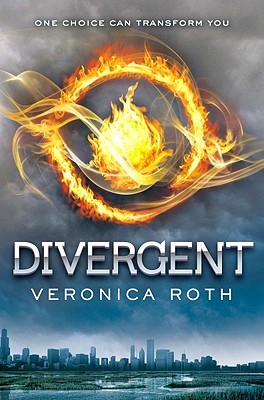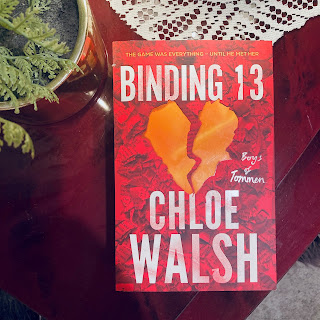Review: Divergent by Veronica Roth
Believe it or not, I actually bought my copy of Divergent before it became popular. In fact, it had probably only been available in Australia for a matter of days when I purchased this new YA novel from an unknown author. It was pretty obvious from the foil cover and endorsement on the front from bestselling author Melissa Marr that its publisher, HarperCollins was expecting it to be popular. Consequently, I could have been among the first to read what has gone on to become a very popular series with a huge following. But, you know, life comes with a whole lot of funny twists and turns and the other book I bought on the same trip to the bookshop just happened to be this one that everyone had been raving about for practically forever called The Hunger Games. I intended to read The Hunger Games first and then Divergent.
And then I ended up reading both sequels to The Hunger Games. Somewhere between that and releases by some of my favourite authors, Divergent just sort of got forgotten and kept right on falling nearer and nearer to the bottom of my to-read pile and probably would have been forgotten had there not been such a fuss over the release of the final novel in the trilogy, coupled with an upcoming feature film release. And so I figured that I had better get reading.
Divergent has some great moments. Set in Chicago in the near future, the city has become isolated from the rest of the world and divided into factions. At age sixteen, its people choose which faction they want to belong to. The factions are based on various personal qualities and values. For example those who value selflessness choose to belong to Abnegation, those who value knowledge choose to belong to Erudite and those who value bravery (which is basically shown in the book to be a code word for recklessness,) choose to belong to Dauntless. There are two other factions, Candor (honesty) and Amity (goodwill), but they do not feature greatly in the book. The heroine, Tris, feels that she does not quite belong in the faction she has been born into (Abnegation,) and longs to escape, but does not know which faction she should choose instead. Fortunately, she must sit an aptitude test, which is supposed to help her decide. All people, it is believed, will demonstrate a clear preference for one of the factions.
Tris' aptitude test reveals some surprising results. Tris, it seems, is Divergent. This is where someone does not show a clear preference for one of the factions. In her world, this is dangerous. People who are divergent rarely survive and are hated by the governing bodies, though its not really made clear why until toward the end of the novel. Fortunately, the people who test Tris find a way of wiping the results so that the ruling government does not find out and file a false report manually instead. On the day of the choosing ceremony, Tris faces a tough decision. Unable to stand pretending to be selfless anymore she ditches the faction she has grown up with and chooses to become one of the Dauntless instead.
From there, the novel moves slowly and perhaps a bit dully considering the violent content, as the story of Tris' initiation into Dauntless is told. You get the sense that their faction is not an entirely nice place and there is a lot of corruption. And there is a sense that there is a lot of corruption going on in other factions, until finally, war breaks out and all of the Dauntless are manipulated into acting as soldiers.
Except, of course, the few like Tris who are Divergent.
And then the novel starts to get very interesting ...
Divergent felt very slow to me in places and I felt that the author could have done more to flesh Tris out and her personality. I also would have liked to have seen more of her mother who proved to be, arguably, the most interesting character in the novel. I liked the subtle (and sometimes not so subtle,) messages on what it truly means to be selfless and brave.
Although I enjoyed reading Divergent and am sorry that it took me so long to read it, (and, no doubt, I delve into the sequels at some point in the near future,) I felt that parts of it could have been fleshed out a lot more, while other parts seemed a bit overlong. The will-they, wont-they subplot between Tris and Four was a lot of fun. To me, Divergent was a B or B+ kind of novel, an intelligent book with an action packed ending and enough in there to satisfy me as a reader, though there were a few parts I think could have been done better. Still, where Roth truly shines is in her depictions of what it means to be a good and moral person. Through characters like Marcus, who are shown to be evil despite living a seemingly moral life and Tris herself, who may seem selfish and a traitor to her family and faction, we learn that what we believe to be a good and moral persona and what truly is a good and moral person are two different things. And I think that's a great take-home message for the target readership. Recommended.




Comments